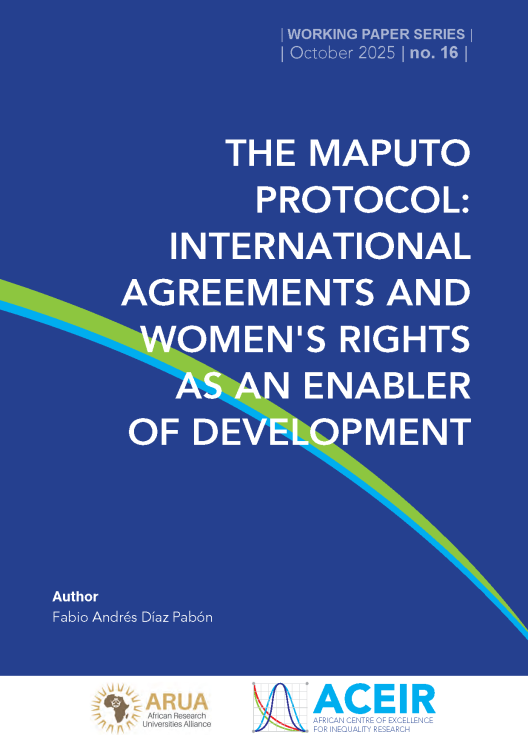The Maputo Protocol: International agreements and women’s rights as an enabler of development
Fabio Andrés Díaz Pabón
ACEIR working paper no. 16, October 2025.
Also published as a SALDRU working paper.

International agreements on human rights are development enablers. One such vehicle is the Protocol to the African Charter on Human and People’s Rights on the Rights of Women in Africa (also known as the Maputo Protocol), a pan-African protocol which aims to further the rights of women and girls – the majority of the population of the continent. The Maputo Protocol was adopted at the 2nd Ordinary Session of the African Union (AU) in 2003. The Maputo Protocol provides venues for the recognition and the realisation of women’s and girls’ human rights, with an intersectional lens that is cognisant of the needs and particularities of the continent. The achievement of any development agenda such as Agenda 2063 and the Sustainable Development Goals (SDGs) depends on the recognition of human rights for all. Thus, the affirmation of women’s and girls’ human rights by the Maputo Protocol becomes a critical instrument for enabling gender equality, central to the goals of Agenda 2063 and the SDGs. Yet, despite its relevance for enabling the progression of women’s rights, the translation of this protocol into local legislations remains incomplete.
One important bottleneck for enabling the rights of women and girls remains the delays in translating such protocols into national legislation. The author argues that the implementation of legal mandates such as the Maputo Protocol can provide pathways for the recognition of human rights on the continent, and that this legal recognition can facilitate the achievement of development goals. Given this, it is central to take stock of the degree of implementation of the Maputo Protocol into national laws. Accounting for the degree of implementation of the Maputo Protocol can provide a “contextual” assessment of the legal conditions in which the rights of women and girls are to be realised, and can inform development efforts and interventions for the rights of women and children of the continent. Read more
